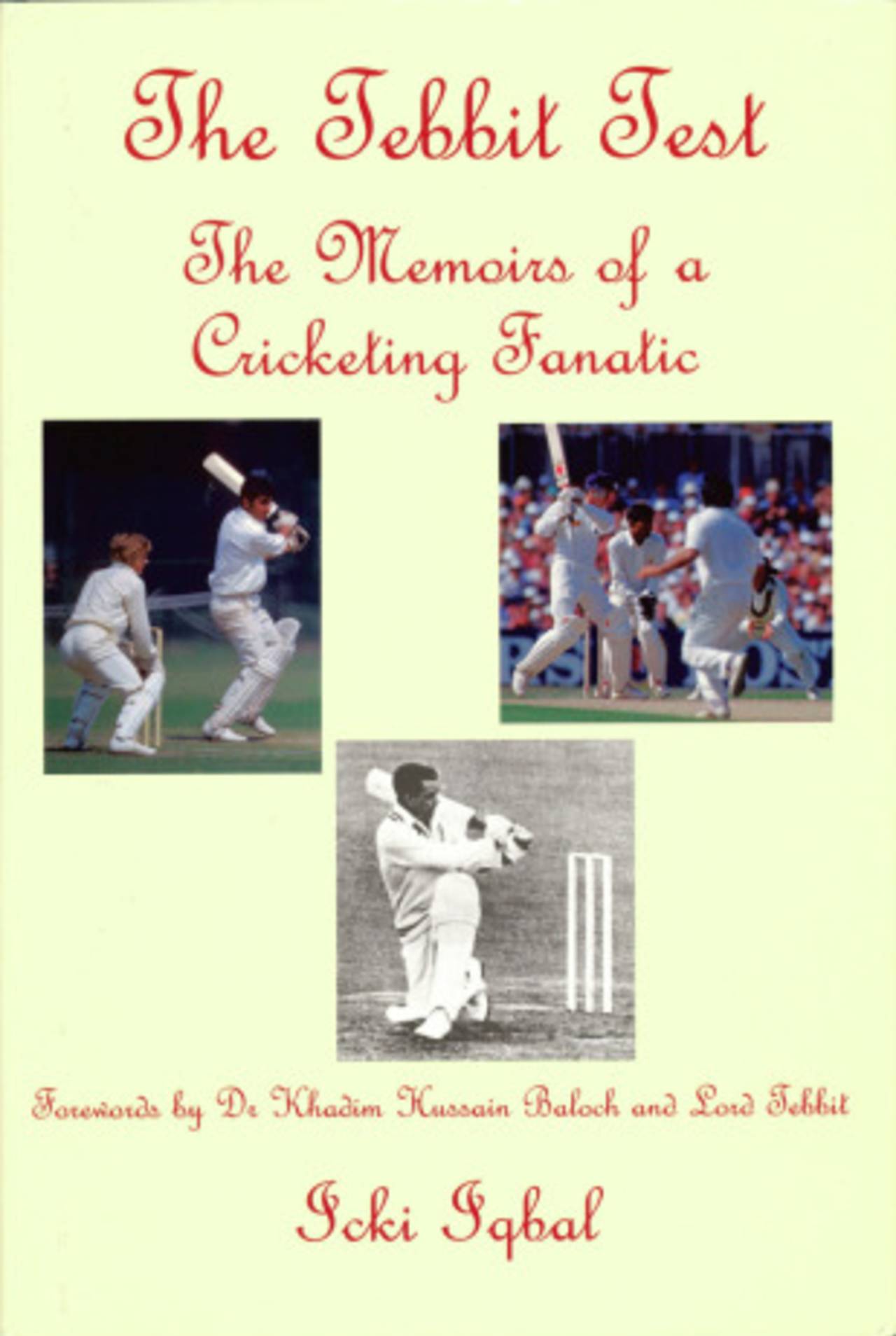An immigrant's absorbing memoir of the game
A passionate Pakistan-England fan engagingly explains how sporting allegiances are formed and how they evolve
Saad Shafqat
Aug 11, 2013, 2:49 AM

Getty Images
The first thing that strikes you about The Tebbit Test, an engaging, self-published memoir from a Pakistan cricket lover who made his life in England, is the title. To people of South Asian descent, it's an unfriendly phrase coined by a controversial conservative politician who questioned the loyalty of immigrants to their adopted British homeland. The book's subtitle ("The Memoirs of a Cricketing Fanatic") is far more friendly, and relaxes you somewhat as your gaze descends down the cover. Eventually you get to the bottom and discover that all must be well, as Lord Tebbit himself has penned a foreword.
My first instinct as I cradled the book and looked it over was to go through Tebbit's note. It does not take long before the phrases "British Empire" (second paragraph) and "British Raj" (third paragraph) appear. Thankfully these get diluted by the overall tone and content of the foreword, which is amiable, intelligent, and a convincing endorsement of the pages to follow.
Icki Iqbal, the author of this refreshingly honest memoir, was born in south India, and migrated with his family to Pakistan as a toddler in 1948. His father was in the civil service, which meant frequent transfers to different locations across the country. Iqbal's schooling took place in Rawalpindi, Lahore and Karachi, always at elite missionary academies. In 1965, he arrived in London to pursue a career as an actuary, and settled down to make the British capital his new home.
Iqbal's prose is flowing and reassured. His style is to gently draw you in and take you along. The reader is quickly charmed as the author goes about sharing the details of his thoughts and activities with humour, reflection, modesty, and at times eccentricity. It is, above all, an unselfconscious book. Despite being an immigrant's memoir, you see nothing of the immigrant's awkwardness. It is also a courteous and cultured book. Iqbal is generous with praise but chooses to be restrained in his criticism.
The narrative is structured as a personal chronology with many specifics and even minutiae of private life at work and home, but cricket comes up on virtually every page. Iqbal's core achievement is to create a window into the nature of sports allegiances and their evolution and transformation in response to society, environment, and time. There is no question he is both a passionate and cultivated cricket fan. He is grabbed by the game when, aged nine, he hears of Pakistan defeating England in the fabled Oval Test of 1954. Thereafter, cricket takes over his senses and possesses his soul.
As a discerning follower of the game, Iqbal makes clear his likes and dislikes. From the Pakistan team of his boyhood, he idolises Imtiaz Ahmed over the more popular figures of Fazal Mahmood and Hanif Mohammad. In fact, Hanif's dour technique and obdurate batting put him off, and even Hanif's famous rearguard Test triple-hundred is mentioned only in passing and without any adjectives. From the great Pakistan sides of the 1970s and '80s, he picks out Majid Khan as his outright favourite, admires Zaheer Abbas and Mushtaq Mohammad, lauds Imran Khan with pride, and feels alienated by Javed Miandad's aggression and gamesmanship.
About halfway through the book, you feel an English sensibility emerging. Ashes contests and England-West Indies encounters are recounted with fondness and interest. There are references to county cricket as well as English cricket board politics. Controversial events such as the Shakoor Rana-Mike Gatting incident are analysed with perspective and balance.
By the time he is in his forties, a transformation is afoot, and Iqbal confirms it. "Pakistan cricket might be my first love," he writes in the chapter covering the years 1988-1991, "but English cricket was a demanding mistress." Iqbal's response to this tension is not to feel torn but to happily give in to the sporting equivalent of bigamy.
Yet sometimes you still have to choose, and Iqbal does it seamlessly. "I got a greater thrill out of the Ashes win of 2005 than Pakistan's World Cup win of 1992," he observes without apology or fuss. He is mindful of certain obligations and responsibilities that come with immigration to another country. Immigration can be a sensitive and angst-ridden topic, so it is heartening to see Iqbal discuss it with a minimum of anguish. He notes that immigrants should "assimilate into society and strive to make the host nation prosperous", but also believes that they should not totally lose their identity.
The interweaving of loyalty to two leading international cricket teams and the relationship between those loyalties with a life lived across cultures ensure that The Tebbit Test offers wide appeal and effortlessly holds the reader's interest throughout. Icki Iqbal spends much time in his book applauding cricket's excellence and wonder, but he deserves applause as well for this absorbing and illuminating contribution to the literature of the game.
The Tebbit Test: The Memoirs of a Cricketing Fanatic
by Icki Iqbal
DDKM Publishing
192 pages

by Icki Iqbal
DDKM Publishing
192 pages

Saad Shafqat is a writer based in Karachi. His latest book is Breath of Death, a medical thriller